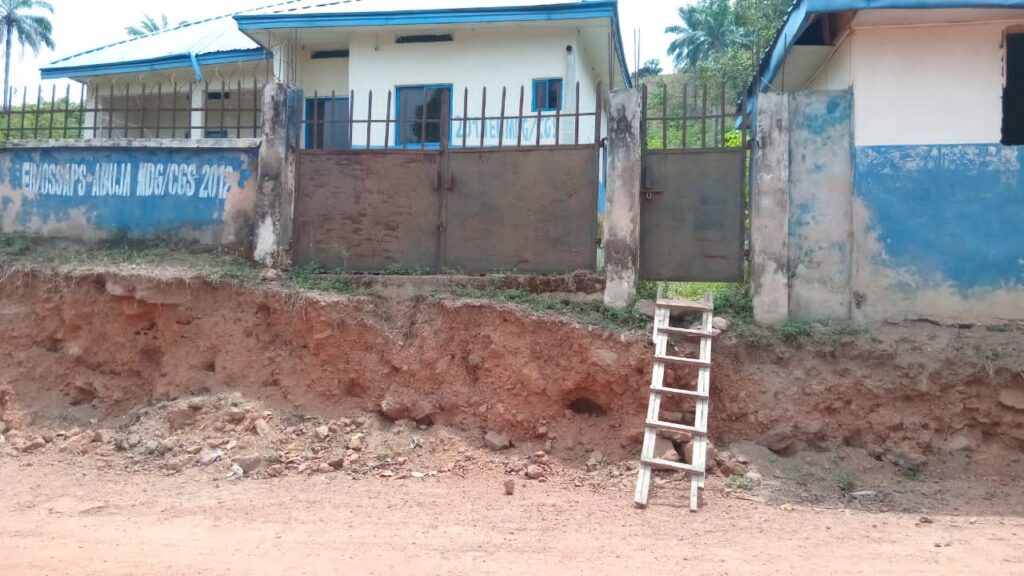Despite having over 30,000 Primary Health Care Centers in Nigeria, data reveals that access to these centers continues to be restricted for many Nigerians. In this investigative report, Ugonma Ogbu found out many more factors and suggests the way forward.
By Ugonma Ogbu
In the remote village of Ameta Oziza, located in Afikpo North Local Government Area of Ebonyi State in Southeast Nigeria, Chiemelie Nkama endures a two-hour trek whenever she needs medical attention.
“When I was pregnant,” she recalls, “I always had to wait until a bike was available before going for antenatal care. I missed most of the required scans and tests, which led to serious complications during labour.”
Nkama’s ordeal is not isolated. Across rural and semi-urban communities in Nigeria, millions of citizens face similar struggles to access Primary Health Centers (PHCs)—the supposed frontline of the country’s healthcare system.
Despite the presence of over 30,000 PHCs nationwide, poor and inaccessible locations have rendered many of these facilities underutilized. A 2025 field study by Orodata Science Nigeria, for instance, revealed a lopsided distribution of PHCs in Afikpo North, where some are clustered within a one-kilometer radius, while others are located far from the communities they are meant to serve.

A separate study by the Nigerian Medical Association (NMA) found that nearly 60% of PHCs in Northern Nigeria are situated more than five kilometers from the nearest community. Conversely, some urban and peri-urban areas in Southern Nigeria are over-served, with multiple centers concentrated within close range—leading to inefficient use of resources and duplication of services.
‘We Carry Patients on Foot’
Livinus Amaegbuna, a commercial motorcycle operator in Ameta Oziza, often assists patients beyond his drop-off point when the road becomes impassable—even for bikes.
“Our health centre is built in an isolated area over a hill,” he says. “The road is rocky and steep. Sometimes, we carry patients part of the way on foot.”

Overview of Ameta Oziza Health Center and its access path, Afikpo Local Government Area
According to Dr. Ezekiel Akpanufot, a public health consultant based in Enugu, issues regarding inappropriate locations of PHCs are often driven by political, administrative, and personal interests rather than population needs or health impact assessments.
“Erosion, Ladders, and Abandonment”
Other factors such as infrastructure challenges and degradation from even natural factors also compound the problem. In Ndioke, another community in Afikpo South, residents say Okponta MDG Health Centre, which is the only nearby health facility, has become almost inaccessible due to erosion and flood damage.
“You need a five-foot ladder to enter the facility,” says Chika Orji, a resident. “The ladder is kept in a neighbour’s house for safekeeping. We bring it out whenever there’s an emergency.”
Chinomso Egonu, the health officer in charge of the centre, says the situation has affected their numbers drastically as the erosion has stripped the land around the building, creating a precarious drop around its foundation.
“It now looks like the facility is sitting on a mountain,” Egonu says. “Government intervention is urgently needed to prevent further damage—or even a potential collapse.”

Image of Okponta MDG Health facility with the ladder used for access

‘Solutions Beyond Numbers’
The National Primary Health Care Development Agency (NPHCDA) employs a multi-stage cluster sampling approach to guide the placement of PHCs. This method considers national coverage, poverty indices, and demographic spread. However, public health advocates argue that more attention must be paid to accessibility factors such as road networks, topography, and proximity to the populations they are meant to serve.

They also call for complementary investments in infrastructure, digital health systems, and mobile health outreach to ensure no Nigerian is left behind.
For families like Nkama’s, the expectations are simple but urgent: bring healthcare closer to home. Until then, the dream of universal health coverage in Nigeria may remain out of reach for millions.
Credit Statement: The story was produced for the Frontline Investigative Program and supported by the Africa Data Hub and Orodata Science

